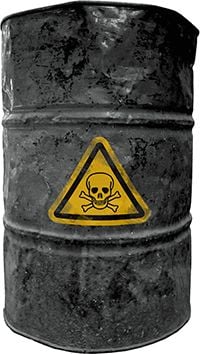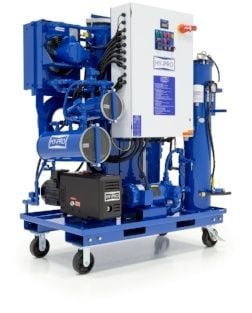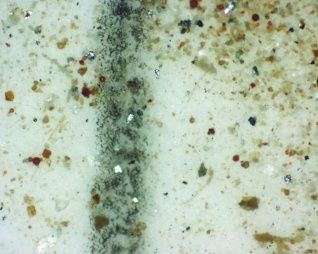If you deal with phosphate ester (PE) based hydraulic and lubricating fluids, then you likely understand how important it is it to keep it under control. Millions of dollars and thousands of downtime hours are wasted each year by power plants, military and industrial users who need solutions to properly maintain PE fluids. If they're not managed, major damage can take place to your equipment and to your fluids. Let's take a look at what really happens when phosphate ester is out of control.
1 min read
Unmanaged Phosphate Ester: What Really Happens
By Brad Bainbridge on Mon, Nov. 11, 2013
Topics: hydraulic fluid Phosphate Ester EHC acid
6 min read
Real Solutions to Bringing Phosphate Ester Under Control
By Scott Howard on Mon, Oct. 14, 2013
If controlling phosphate ester seems about as elusive as lassoing a bucking bronco, then you've come to the right place. Put on your cowboy hat and let's talk about real solutions to getting it under control.
Topics: water Water Contamination Phosphate Ester EHC contaminination acid
4 min read
What is a Vacuum Dehydrator?
By Scott Howard on Mon, Sep. 30, 2013
If the hydraulic, lubricating, compressor or gear oil you use is not made of a water base in
There are three types of water in a typical system: free water
Using 100ppm for an upper water limit for most systems using mineral base oils, this means all free and emulsified water and a significant portion of dissolved water must be removed.
A vacuum dehydrator is one of the very few methods to remove dissolved water from oil. Let's take a look at these three types of water in your system. It will give you a solid foundation for how the vacuum dehydrator works in the end.
Topics: water Water Contamination vacuum dehydrator contaminination VUD
2 min read
Why You Need Proper Filtration in Front of Your Control Valves
By Scott Howard on Mon, Sep. 23, 2013
Proper filtration keeps control valves from becoming faulty and failing.
Most people have at least heard the term control valve, even if they don't know exactly what it does. For those of you caring for hydraulic systems, you likely work intimately with these parts. Did you know that if you're not using proper filtration in front of said control valves that you're likely doing your operation a disservice? (It's true.)
Topics: contaminination filter elements
4 min read
[Video] How Big is a Micron?
By Brad Bainbridge on Mon, Aug. 26, 2013
If you’ve been following our blog, you probably have a pretty solid understanding of ISO fluid cleanliness codes (if not, click here). You know that ISO codes quantify levels of particulate contamination at three different micron sizes (4μm/6μm/14μm), but how big is a 4μm particle? Watch the video below for a brief explanation of micron size.
Topics: iso cleanliness codes video
1 min read
Eliminating Filter Element Sparking
By Brad Bainbridge on Mon, Aug. 12, 2013
Static electricity is an amazing thing. It can cause hairs to stand on end when rubbed with a balloon, which can cause it to then stick to a wall. (It’s a fun trick, especially for kids). Unfortunately, when it comes to interaction with filters, static can have devastating results.
Topics: thermal event varnish SVR NSD filter elements
2 min read
Getting Started with Selecting Target ISO Cleanliness Codes
By Brad Bainbridge on Mon, Jul. 29, 2013
Here at Hy-Pro, we understand the importance of selecting target ISO Cleanliness Codes. That’s why we’ve put together this set of instructions for selecting target codes in case you’re in need of a little help.
Topics: iso cleanliness codes
3 min read
How Clean is New Oil? - Part two
By Brad Bainbridge on Mon, Apr. 15, 2013
If you didn’t happen to catch last week’s blog or want to jog your memory, click here.
Last week we discussed how new oil picks up contamination on its way to your facility. This week we’ll continue our investigation of how your new oil isn't really clean. Let's take a look at a three more reasons your new oil continues to be contaminated as it reaches your distributor.
Topics: contamination new oil liquid conditioning station LCS
2 min read
How Clean is New Oil? - Part 1
By Brad Bainbridge on Tue, Apr. 09, 2013
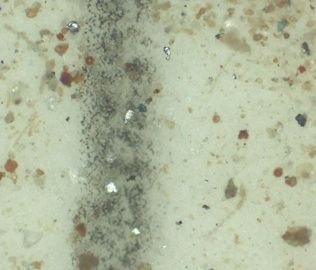
Lubricants and hydraulic oil have to go a long way to make it into your system, which means there's a high potential for it to pick up particulate and water at every step along the way.
Around here at Hy-Pro, we cringe when we think about that process and how our customers put that oil into their machines. We want you to be aware of the state of the oil that you're using, so let's take a look at three reasons why new oil does not mean CLEAN oil.
Topics: contamination new oil liquid conditioning station LCS
1 min read
Improving Rolling Mill Lube Oil Performance and Useful Life - Part 3: Solution
By Aaron Hoeg on Mon, Mar. 18, 2013
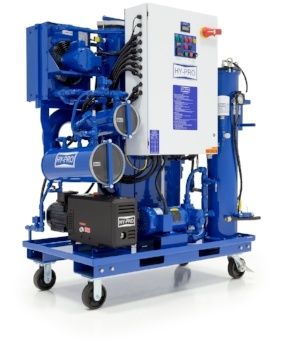 At the end of Part 2, we discussed the winning nature of vacuum dehydration. If you missed Part 1 in the series, you can find it here.
At the end of Part 2, we discussed the winning nature of vacuum dehydration. If you missed Part 1 in the series, you can find it here.
Did you know that hydrogen is the friendliest molecule - meaning that it is most likely seeking partners to attach to? Similarly, the suspended particles in oil actively look for particles to join forces, so they pair with the water.
This particulate contamination is the catalyst guilty of continuing the degradation of the oil and the increase of emulsified water. The more water there is, the more oxidation that occurrs. This also increases various acids that form as the molecules break down. These acids attack seals, hoses, pumps and metal.




